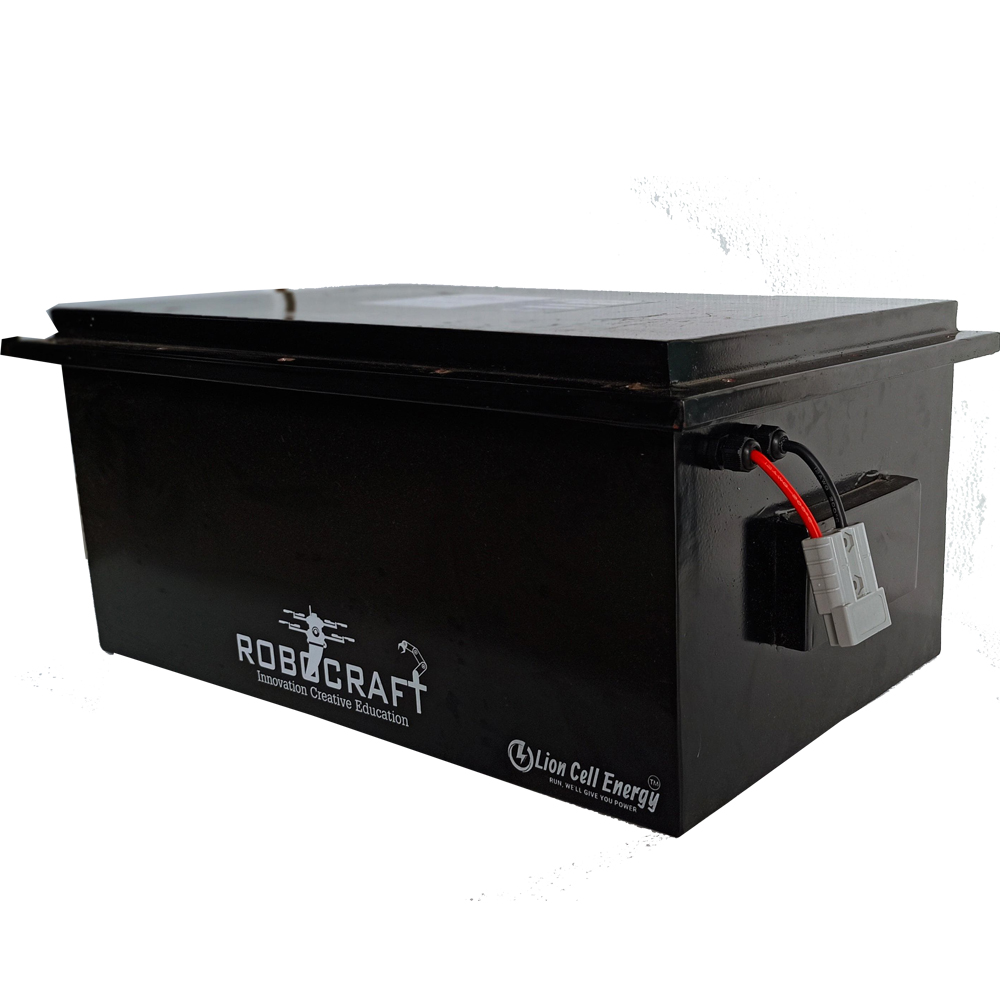⚡ Why Choose Lithium-ion Battery for Inverter?
Best Lithium-ion Inverter Battery for Home & Commercial Use (2025 Guide) are transforming backup power systems due to their advanced features:
- ✅ 3X Longer Life (2000–5000 cycles)
- ✅ 60% Faster Charging than Lead-Acid
- ✅ Compact & Lightweight
- ✅ Maintenance-Free (No Water Topping)
- ✅ High Efficiency & Deep Discharge Capability
Compared to traditional tubular or flat plate batteries, Li-ion is the smarter and more reliable choice for homes, offices, shops, solar plants, and industrial applications.
📐 How to Choose the Right Lithium-ion Inverter Battery
✅ Know Your Power Requirement
Start by estimating the total wattage of devices you’ll power during a blackout. This helps in selecting the right battery capacity and inverter size.
| Appliance | Typical Wattage |
|---|---|
| LED Bulb (5–9W) | 9W |
| Ceiling Fan | 60–80W |
| Laptop | 100W |
| TV (32” LED) | 60W |
| WiFi Router | 10W |
| Refrigerator (Medium) | 150–300W |
| Water Pump (0.5HP) | 370W |
| Washing Machine (Spin) | 400–500W |
| Microwave Oven | 1000–2000W |
| Induction Cooktop | 1500–2000W |
| Electric Geyser | 2000–3000W |
| 1.5 Ton Air Conditioner | 1200–1800W (2500W start) |
⚠️ Note: High-wattage appliances like ACs, geysers, and cooktops require high-capacity inverters (3kW–5kW) and large lithium battery banks (e.g., 48V 100Ah or higher). Avoid using them on regular backup systems unless designed for it.
✅ How to Calculate Inverter Battery Backup Time
🔍 SEO Keywords integrated: inverter battery backup time calculation, how to calculate battery backup, lithium battery backup for inverter, inverter battery backup hours
To ensure your lithium inverter battery meets your needs, calculate the estimated backup duration using this formula:
🧮 Battery Backup Time (hours) = Battery Capacity (Wh) ÷ Load (W)
Example:
- Battery: 48V 40Ah → 48 × 40 = 1920Wh
- Load: 500W
→ Backup: 1920 ÷ 500 = ~3.8 hours
| Battery Size | Load (W) | Backup Time (Approx.) |
|---|---|---|
| 48V 40Ah (1920Wh) | 500W | 3.8 hours |
| 48V 60Ah (2880Wh) | 1000W | 2.8 hours |
| 48V 80Ah (3840Wh) | 800W | 4.8 hours |
✅ A larger lithium-ion battery for inverter gives you longer power backup.
⚠️ For solar inverter battery backup, ensure the battery supports both solar PV and grid charging. Always calculate with a 20% safety margin for efficiency losses.
✅ Step 3: Select Battery Voltage & Capacity
| Inverter System | Battery Voltage | Recommended Capacity |
|---|---|---|
| Small Home (500–1000W) | 24V or 48V | 24V 50Ah / 48V 25Ah |
| Medium Home / Office | 48V | 48V 40Ah – 60Ah |
| Commercial / Heavy Use | 48V / 60V | 48V 80Ah – 100Ah |
🔌 Perfect Li-ion Battery Configurations (Use Cases)
🔍 SEO Keywords included: industrial lithium battery backup, UPS lithium battery pack, Li-ion battery for commercial inverter, custom lithium battery pack for industry
| Application/Use Case | Recommended Battery Pack | Runtime Estimate |
|---|---|---|
| 1BHK Home Backup | 24V 50Ah (1200Wh) | 2–3 hours |
| 2BHK + TV + Fan + Fridge | 48V 40Ah (1920Wh) | 3–4 hours |
| Office with WiFi + Laptops | 48V 60Ah (2880Wh) | 3–5 hours |
| Shop + Lights + Billing Machine | 48V 80Ah (3840Wh) | 4–6 hours |
| Server Room UPS Backup | 48V 100Ah (4800Wh) | 1–2 hours (1500–2000W load) |
| CNC Machine Control Backup | 60V 100Ah (6000Wh) | 2–3 hours (2–3kW load) |
| Telecom Tower Backup | 48V 150Ah (7200Wh) | 4–6 hours |
| Solar Off-Grid Inverter System | 48V 200Ah (9600Wh) | 6–8 hours (moderate load) |
| Industrial Cleaning Robots/AGVs | 48V 60Ah / 72V 50Ah | 4–8 hours operation |
| Warehouse Automation / AMR Systems | 48V 100Ah Smart Li-ion Pack | Up to 10 hours |
| Heavy Duty Industrial UPS System | 96V 200Ah (19.2kWh) | Depends on load (5–10kW) |
| Medical Equipment Backup (Silent) | 48V 50Ah or 48V 80Ah | 2–5 hours |
| High Surge Load (Motor Start Backup) | 48V 100Ah with high-discharge BMS | 1–2 hours with 3kW peak |

🏭 Need a Custom Industrial Battery?
We build customized lithium-ion battery packs with:
- Smart BMS (CAN/RS485)
- Rack-mount, trolley, or cabinet enclosures
- High-discharge and long-cycle cells
- Compatibility with 3-phase inverters and solar hybrid systems
⚡ Talk to us about solutions for factories, solar plants, labs, AMRs, and telecom centers.
🔋 Why Choose LION CELL Li-ion Batteries?
At ROBOCRAFT, our LION CELL ENERGY Li-ion batteries are:
- 🔧 Built with Grade A SVOLT 21700 or 32700 cells
- 🧠 Integrated with Smart BMS (Short circuit, Overcharge & Thermal Protection)
- 💯 Fully tested for:
- Cell voltage & IR matching
- Spot welding at –10°C to +25°C
- Charging & discharging cycles
- BMS load testing with auto-cut features
🛠️ Inverter Compatibility & Installation
Ensure your inverter supports:
- ✅ Adjustable charge voltage (e.g., 54.6V for 48V batteries)
- ✅ Charge current limitation
- ✅ Communication protocols (CAN/RS485) – for smart inverters
If not, use an external lithium-compatible charger.
🔧 Maintenance & Safety Tips
- ✅ No water topping needed
- ✅ Keep battery in a dry, ventilated place
- ✅ Avoid deep discharge below 10%
- ✅ Use certified chargers/inverters
🛒 Customized Battery Packs Available
We provide tailor-made lithium battery packs for:
- 🏠 Home inverter systems
- ☀️ Solar applications
- 🏭 Industrial backup systems
Available with Bluetooth/WiFi Smart BMS, LCD indicators, and solar controller integration.
📘 Extended FAQ – Lithium-ion Inverter Battery
🔹 Q1. What is the lifespan of a lithium-ion inverter battery?
5 to 7 years or 2000–5000 cycles depending on usage, temperature, and charger quality.
🔹 Q2. Can I use a lithium battery with my existing inverter?
Yes, if it supports lithium charging. If not, use an external charger or upgrade to a lithium-compatible inverter.
🔹 Q3. How much backup does a 48V 40Ah battery provide?
It gives ~3.8 hours backup for 500W load, and ~1.9 hours for 1000W load.
🔹 Q4. Is lithium-ion safe for homes?
Absolutely. It’s safer than lead-acid:
- No acid spills or fumes
- Smart BMS protection
- No risk of explosion when using certified batteries
🔹 Q5. What are the benefits over tubular batteries?
| Feature | Lithium-ion | Tubular Battery |
|---|---|---|
| Lifespan | 5–7 years | 2–4 years |
| Charging Time | 2–3 hours | 8–10 hours |
| Maintenance | Zero | Requires water topping |
| Size & Weight | Compact & light | Bulky & heavy |
| Efficiency | 95%+ | 70–80% |
🔹 Q6. What is a BMS?
Battery Management System — it protects the battery from:
- Overcharge / Overdischarge
- Short-circuit
- Overcurrent / Temperature surge
🔹 Q7. Can it be used with solar?
Yes, lithium batteries are ideal for solar + inverter systems. Ask for solar-integrated BMS with RS485/CAN.
🔹 Q8. How to store batteries when not in use?
- Keep at 40–60% charge
- Store in 10–30°C area
- Disconnect from inverter
🔹 Q9. Do lithium batteries catch fire?
Only low-quality or damaged batteries may. Our LION CELL batteries are built with certified BMS & quality cells, ensuring thermal and electrical safety.
🔹 Q10. How to monitor battery health?
Options include:
- Bluetooth App
- LCD Display
- WiFi Remote Monitoring
lithium ion inverter battery, best battery for inverter, and solar inverter lithium battery pack to help you make informed decisions for both residential and commercial power backup solutions.
When exploring how to improve your backup time, we’ve explained the inverter battery backup time calculation using simple formulas, ideal for customers searching for how to calculate battery backup time. Whether you’re powering a home inverter system or a UPS lithium battery pack for industrial use, choosing the right Li-ion battery for inverter is critical.
For solar-based systems, the guide also covers the advantages of using a solar inverter lithium battery pack, which supports both grid and PV charging. We’ve also included configurations for industrial lithium battery for UPS, custom lithium battery packs for factories, and lithium batteries for telecom or CNC machines.
Whether you’re a homeowner, shopkeeper, or industrial user, this guide will help you select the best lithium-ion battery for home and factory use—optimized for performance, safety, and durability.

